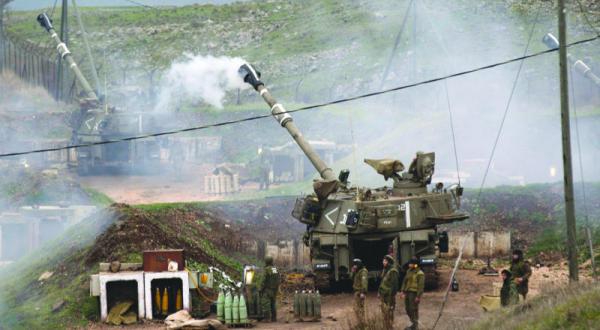Lebanese sources described Hezbollah’s attack on an Israeli patrol, passing through the bordering Shebaa farms on Monday, as an attempt to mitigate pressure on Iran in light of Arab seclusion, after meddling into internal judicial affairs of Saudi Arabia, and assaulting both Saudi delegations in Tehran and Mashhad.
On the event of Hezbollah’s response, a security source spoke of “Hezbollah targeting an Israeli patrol with an improvised explosive device (IED) in Shebaa farms”, while another security source said that “ Israel responded by attacking both populated Abbasiyah and Wazzani with 30 shells.”
The whole operation appears to be limited and meager, in comparison to other operations pulled off by Hezbollah on southern grounds after the assassination of its previous leaders.
Furthermore, “Institute for Near East and Gulf Military Analysis” INEGMA’s CEO Riad Kahwaji told Asharq Al-Awsat that “any hard-wearing response by Hezbollah would put its ally Iran in serious trouble, at a time when Iran is looking forward to put its nuclear deal with the West into action” .
“It does not play well to Hezbollah’s benefit, if they choose to escalate the situation with Israel. Given that Hezbollah’s troops are taking on fierce battles in Syria, which is a situation that has forced over half of its forces into Syrian grounds, it bodes no good for Hezbollah to undertake another frontier in the South of Lebanon, since it will result in putting its forces in a military strain”, Kahwaji added.
In the ballpark, mid-December, the American congress passed on punitive measures that were signed by President Barak Obama, penalizing bank accounts belonging to Hezbollah’s parliament deputies were implemented in Lebanon.
The Association of Banks in Lebanon (ABL) notified all bank administrations of the resolution, with a serious clear-cut warning of any bank dealing with any Hezbollah deputy enlisted on the American punitive roaster.
Moreover, a banking source revealed to Asharq Al-Awsat that “procedures were not restricted to deputies alone; they have also affected people belonging to Hezbollah and their monetary transactions inside and outside Lebanon”

